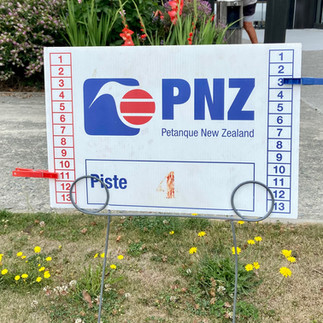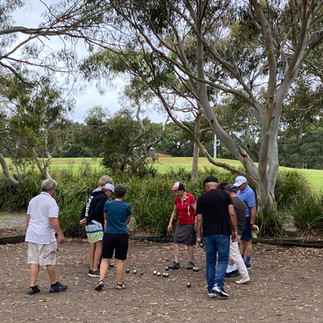Exploring Pétanque in Aotearoa and Down Under
- sactownpetanque
- Feb 7, 2024
- 2 min read
Recently, two of us Sactowners had the privilege of visiting clubs in Australia and New Zealand during a holiday trip. The petanque community in these lands enveloped us in their friendliness. We were treated to spirited matches and invitations to pre- and post-game gatherings that made us feel right at home. It was evident that the enthusiasm for petanque ran deep with Australians and New Zealanders.
However, we couldn't help but notice a significant contrast in the level of investment between petanque clubs in the U.S. and those in Australia and New Zealand. What struck us most was the profound support these clubs received from their communities and city councils. Government and businesses provided substantial funding to help build clubhouses, shade structures, lights, and other court improvements. While each club member contributed a modest membership fee, it was clear that without the backing of their government, these high-cost amenities would be unattainable.
Moreover, we observed that many petanque clubs in these countries were affiliated with lawn bowling clubs, which have a rich history and strong community ties. This partnership allowed petanque clubs to benefit from the resources and support of their counterparts in lawn bowling. The widespread support for these clubs, along with other sports, speaks volumes about the belief in the transformative power of sports in these societies.
Beyond the impeccably maintained courts, another delightful aspect was the presence of full kitchens and spacious communal areas in these clubhouses. They offered more than just a place to play; they provided a welcoming environment for shared meals and social gatherings. There was a real sense of community on and off the courts.
Reflecting on these experiences, we can't help but wish for a similar trajectory for petanque in the United States. Imagine thriving indoor and outdoor petanque spaces that promote gatherings and combat loneliness. Social isolation and chronic loneliness are growing public health concerns in the U.S. Loneliness can lead to early death and has been linked to negative health outcomes such as heart disease and diabetes. In contrast, social connections are good for our health and give us a sense of belonging. The investment in gathering places like the petanque clubs in Australia and New Zealand may seem substantial at first, but the returns, both in terms of community well-being and the growth of pétanque, are immeasurable. It's a public health investment that benefits everyone. For now, we will keep having fun and playing with our friends and dream about such investments in our community one day.














